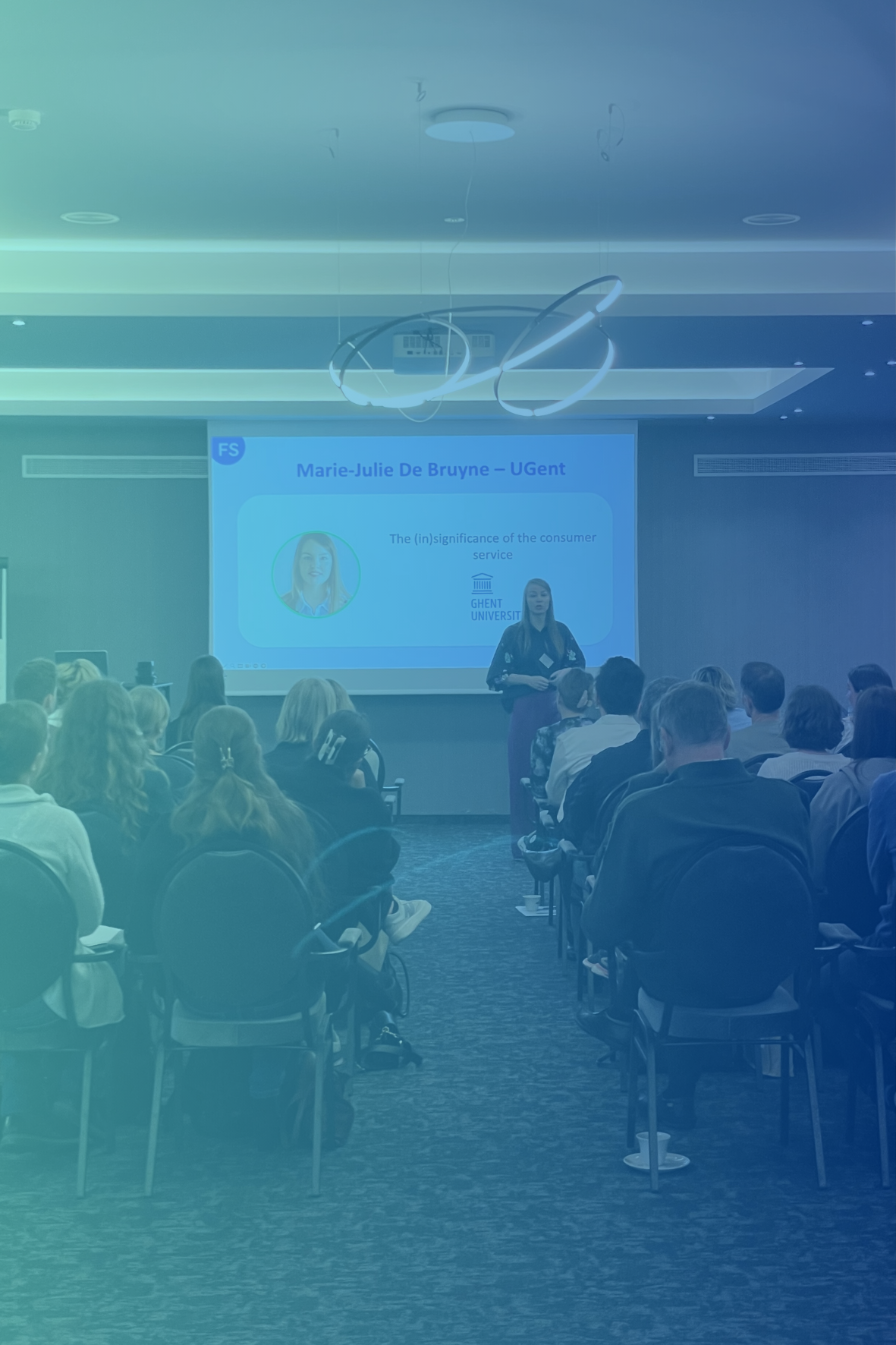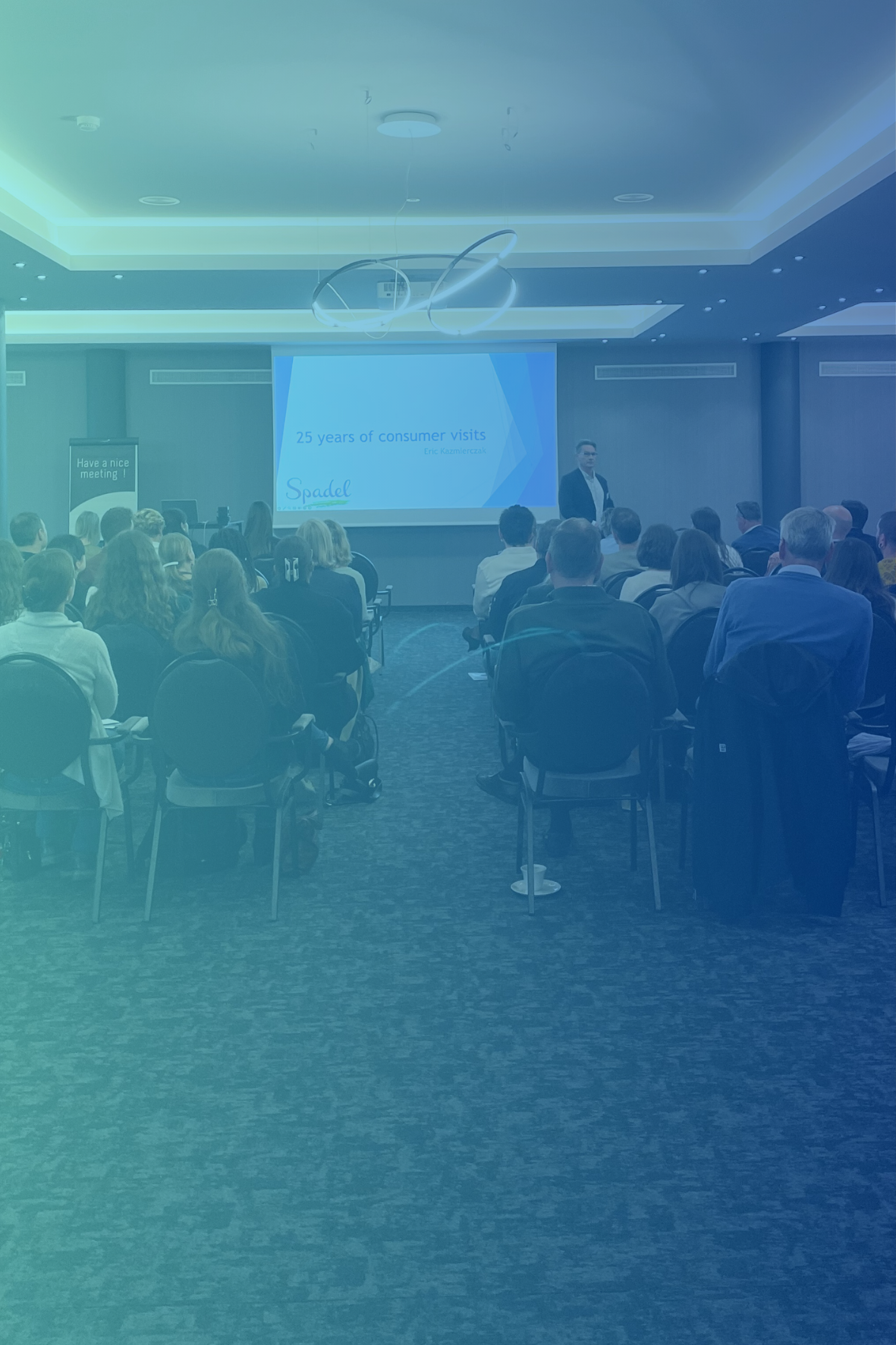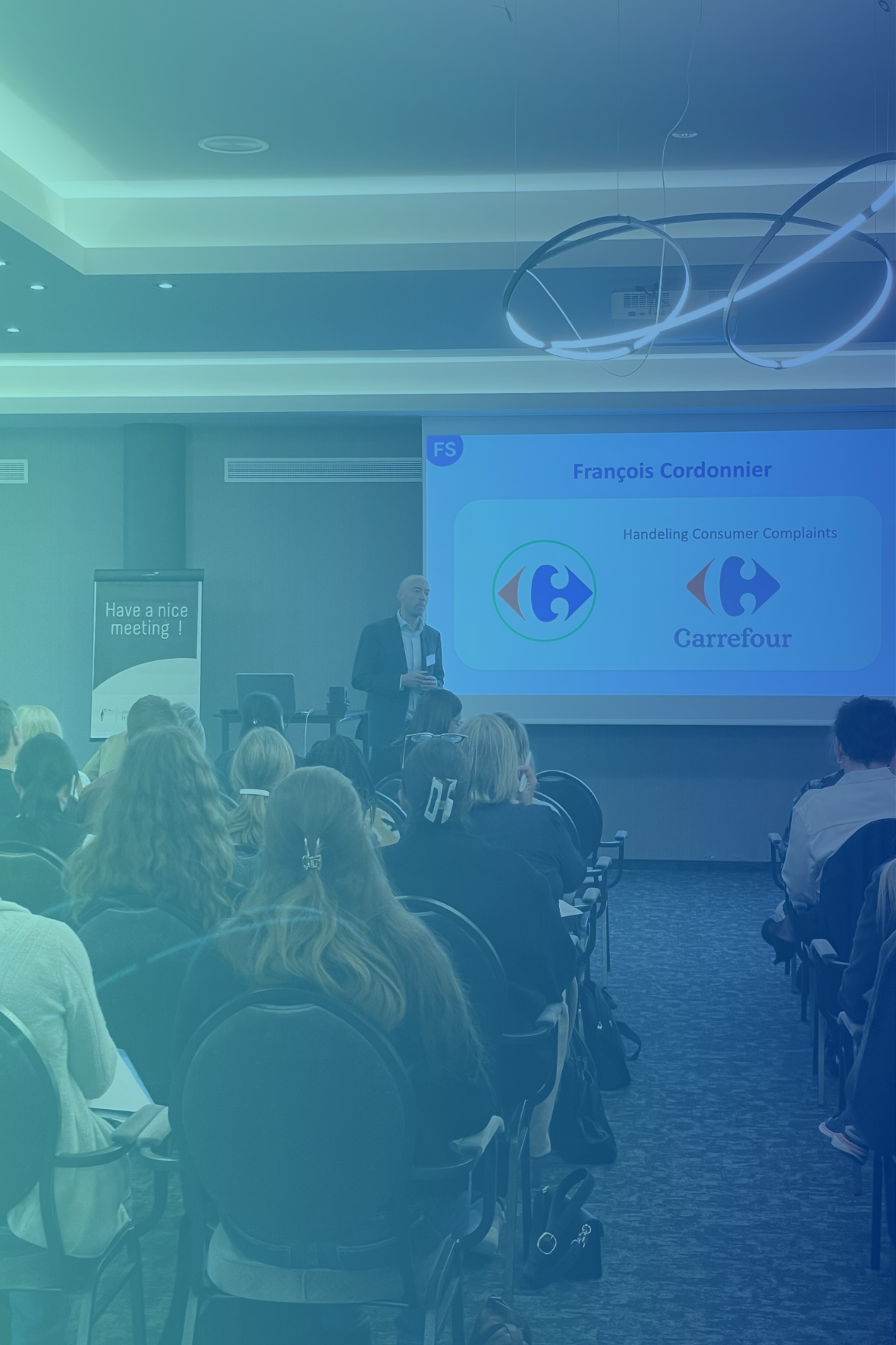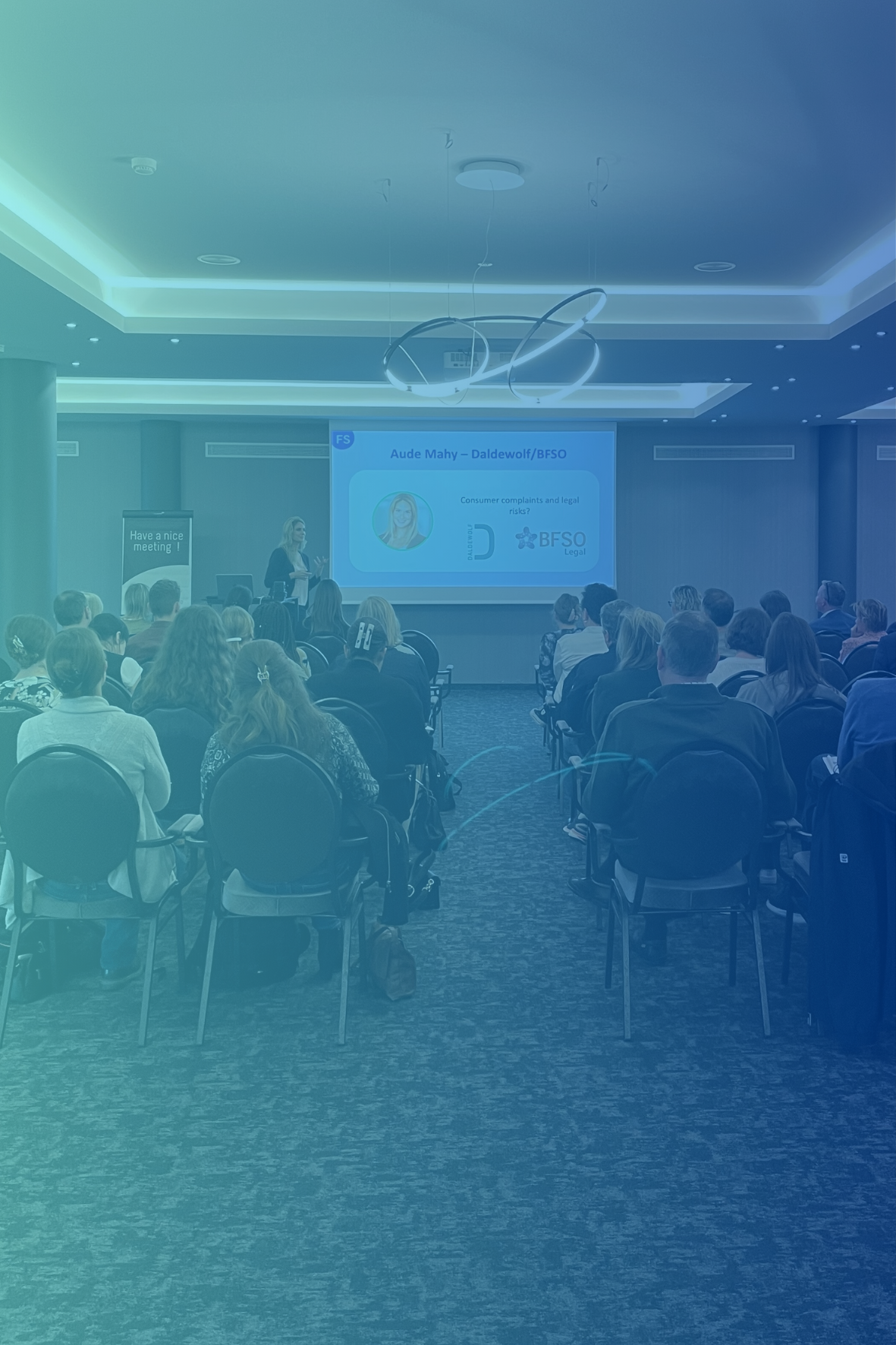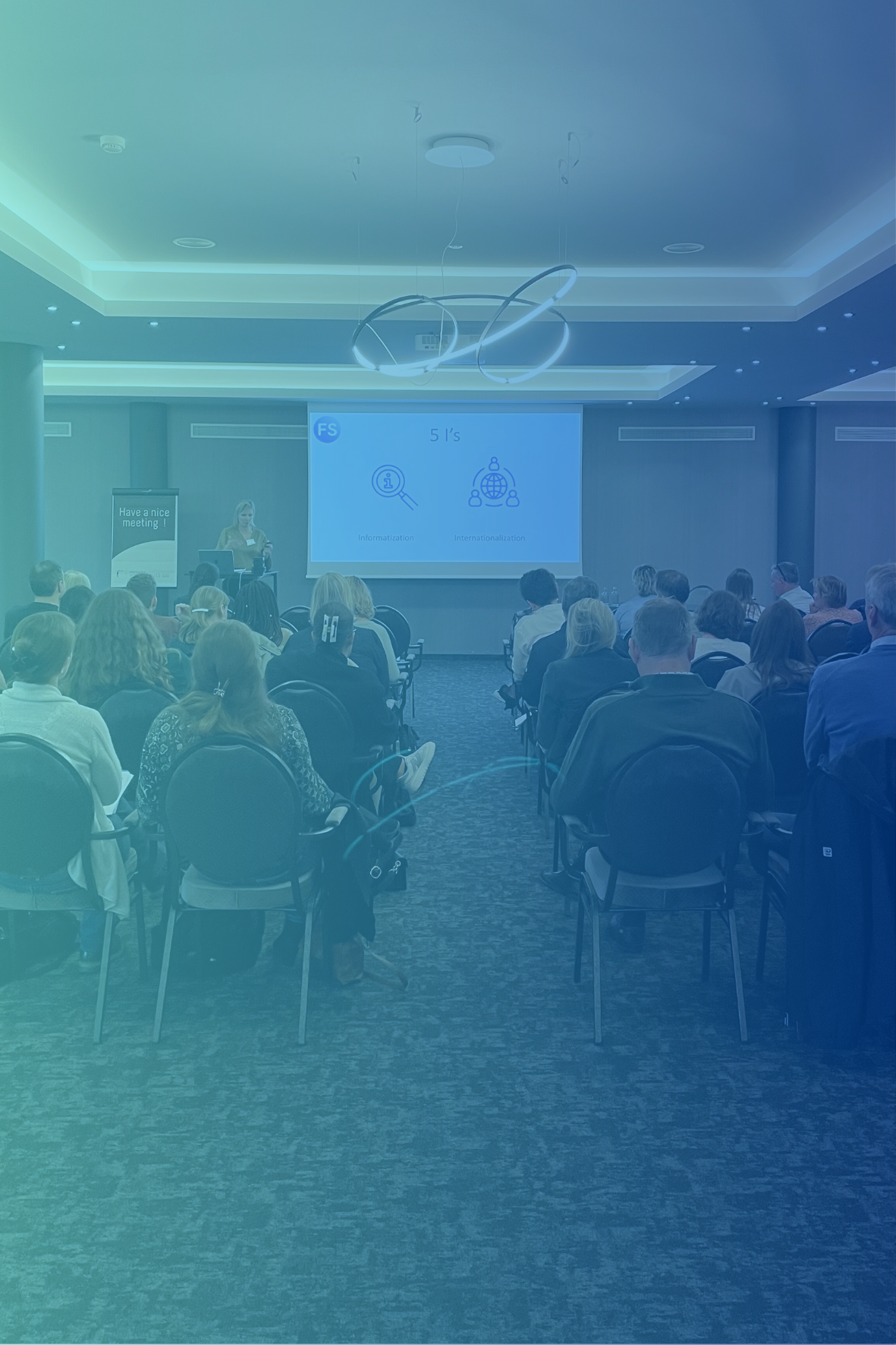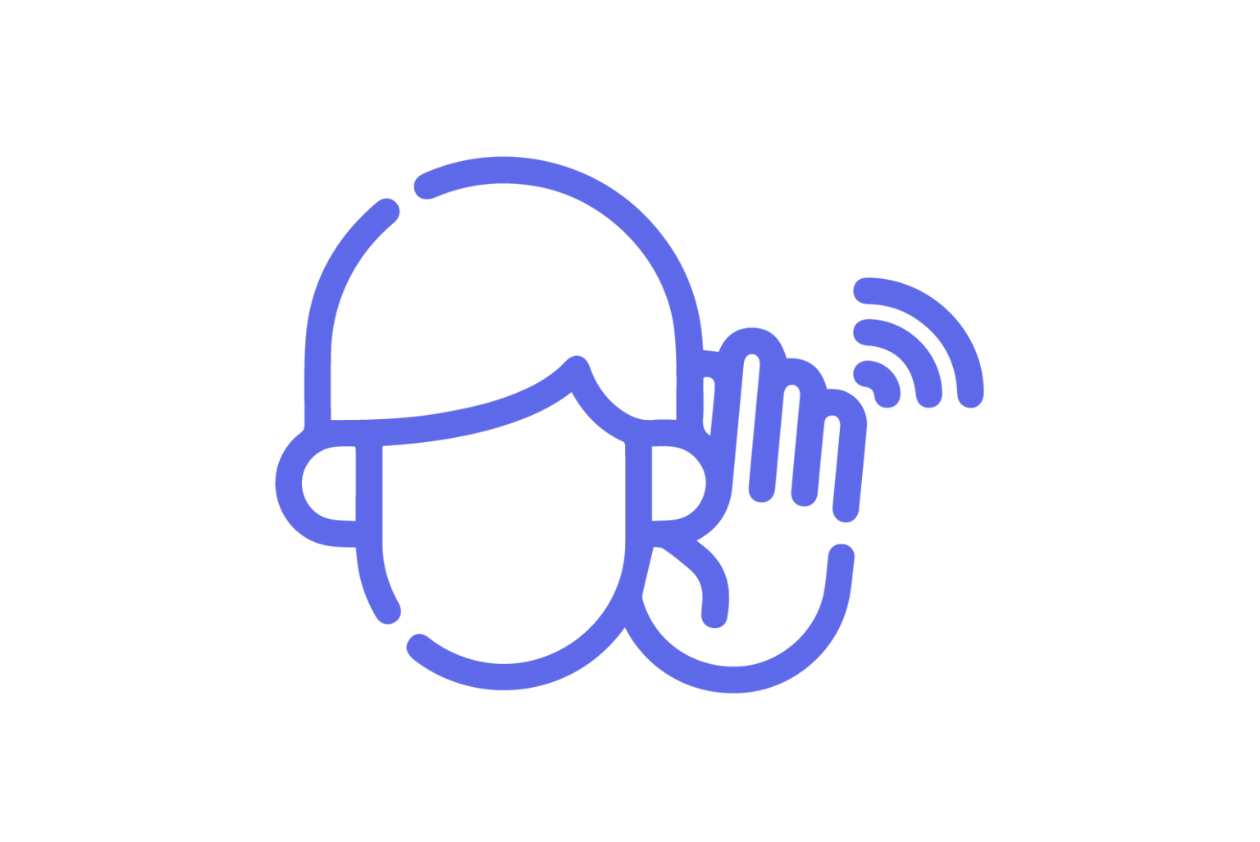6 lessons from our Lunch & Learn “Sensitive Consumer Complaints”
During our Lunch & Learn “Sensitive Consumer Complaints,” experts and companies provided insights into how to effectively handle challenging complaints. You can find a summary of our key learnings below.
- How to handle sensitive consumer complaints?
- Which channels should you use?
- And what if things go wrong?
Lesson 1: “Turn complaints into opportunities"
Consumer services can play a major role in maintaining consumer trust.
Marie-Julie De Bruyne, postdoctoral researcher at the Centre for Service Intelligence (UGent) confirmed that each complaint can be turned into an opportunity.
As a company, you can always recover from a sensitive consumer complaint. Research shows that a properly handled complaint can make a consumer's loyalty even stronger than before. This phenomenon is called the “Service Recovery Paradox.”
Moreover, she also addressed the effect of consumer service digitization on the consumer experience and took a look at the future.
New technology such as AI will continue to evolve and can certainly be effective for simple tasks, but human intervention will always remain crucial when contacting consumers, especially with sensitive complaints.
Companies should embrace new technology, but should also continue to invest in high-quality interactions and empathetic responses.
Lesson 2: "Crisis communication could prevent escalation"
Eveline De Ridder, business manager of Whyte Corporate Affairs, used some case studies to show how bad news or a “bad buzz” could seriously damage a company's reputation.
The public and stakeholders are increasingly vocal about companies, and nowadays more interested in what goes on “below the surface”.
Consumers and stakeholders want their questions answered and companies must have those answers ready. Crisis communication is not a nice to have, but a must have.
When crisis strikes, your company must communicate. In this regard, Eveline emphasized that crisis communication will not solve the problem, but mainly could prevent further escalation.
Even in the event of “bad buzz,” an empathetic and clear company position is important. Always make it known that your company is involved, is aware of the problem and what actions you will take to prevent a similar situation in the future (we care - we know - we do).
Lesson 3: “Every consumer complaint is a learning opportunity”
Eric Kazmierczak has 25 years of experience as Customer Claims Manager at Spadel. He provided valuable insights on handling sensitive consumer complaints.
In doing so, he pointed out the importance of quick responses and a personal approach. When you respond quickly as a company, you can mitigate the consumer's initial reaction.
Furthermore, he indicated that you should treat every consumer complaint as a case. First, gather as much information as possible and then, conduct a thorough investigation. Primarily to resolve the consumer complaint, but also to learn from it.
A good understanding of the complaint and its cause can help prevent recurring issues. Moreover, consumers are also (unconsciously) a source of information for the development of new products.
For example, Spadel was able to optimize their ecological packaging along the way by listening to consumer feedback.
Lesson 4: “Talking to consumers helps”
François Cordonnier, Quality Control Manager at Carrefour, explained how direct contact with consumers helps to discover the true story behind a consumer complaint.
He advises to always remain factual, even when the consumer comes across as friendly and credible.
Consumers may genuinely believe that there is a problem with the product, while personal contact with the consumer often reveals that the problem lies elsewhere. For example, foreign bodies may accidentally enter the product in the consumer's home.
An investigation with direct consumer contact can help to effectively handle the complaint and preserve the relationship with the consumer.
Lesson 5: "Communicate at the very first sign of a problem"
Aude Mahy, Food Law Partner at DALDEWOLF Belgium, discussed the legal aspects of consumer complaints.
The Federal Agency for the Safety of the Food Chain (FASFC) is obliged to launch an investigation in the event of a serious complaint. Since January 1, 2024, the FASFC can also impose fines for potential violations.
Aude stressed the importance of timely communication, even in case of suspected contamination or increased safety risk, and not only once the problem has been identified.
This advice shows how new legislation can affect the strategic choices of companies in the food industry.
Lesson 6: “Establish an aggression policy for your company”
Aggression in consumer complaints is becoming increasingly common. Our own Crisis Management Consultant and Trainer, Julie Strypstein, elaborated on the causes of aggressive behavior and provided practical tips for dealing with it.
The five I's (Individualism, Intensification, Informalization, Informatization, Internationalization) provide a framework for understanding the increase in aggression.
It is important to set clear boundaries and have an aggression policy at your company. This way, incidents can be identified early and dealt with appropriately.
How can we help you?
Want to get started with these insights?
👉 Plan your training courses and tests for 2025
👉 Sign up for our monthly Learning Point with cases and tips
NEW - Whitepaper '7 burning questions about crisis communication'
You can mitigate a rising crisis if you get your crisis communication right.
In our whitepaper, we answer 7 frequently asked questions about crisis communication. This practical document is packed with tips, examples and a handy checklist for a strong crisis communication plan.
Learning points

The crisis as the new normal
For an increasing number of Belgian food companies, crises are no longer the exception, but the new normal. The days when a crisis was a clearly defined incident, are far behind...
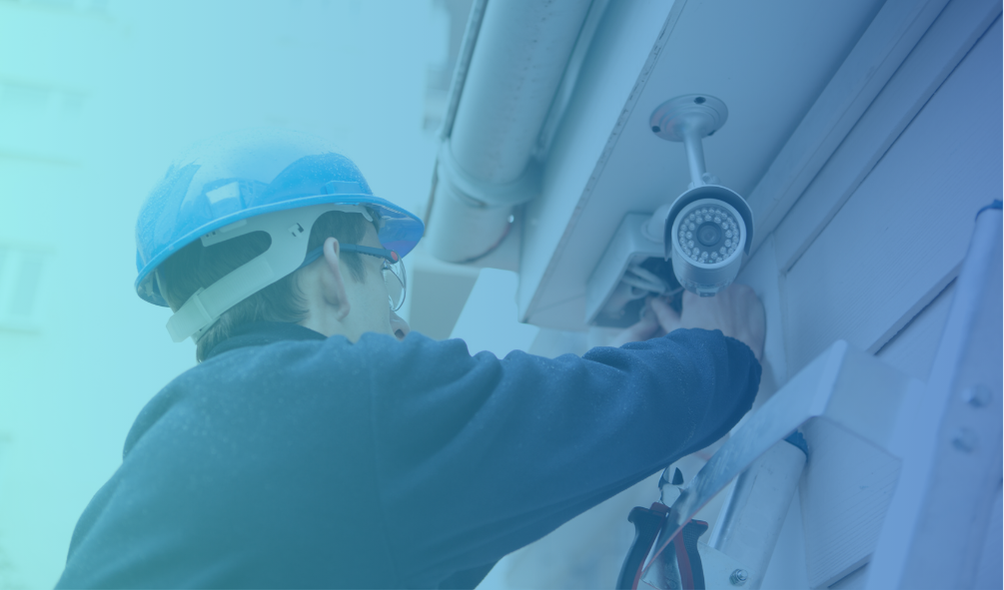
Keep intruders out: strengthen your company’s physical security
Cybercrime often takes centre stage these days. But while digital firewalls are being fortified, physical gates are sometimes left wide open. As a food producer, your responsibi...

Crisis communication: is keeping silent an option?
The right communication can nip an escalating crisis in the bud, but if you make a mistake you risk aggravating the crisis even more. Is it sometimes better not to communicate a...
